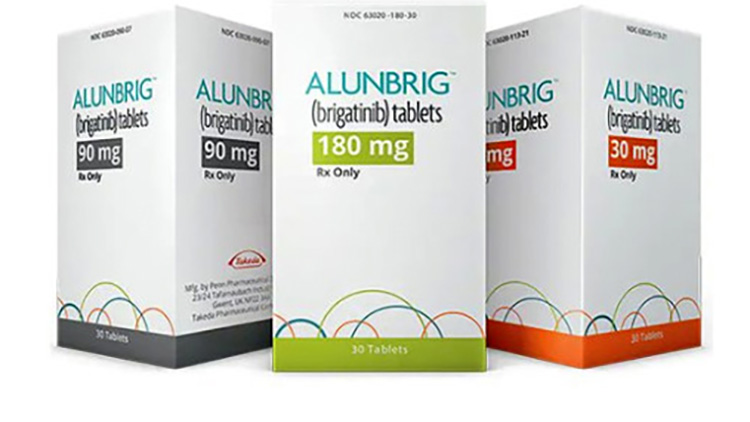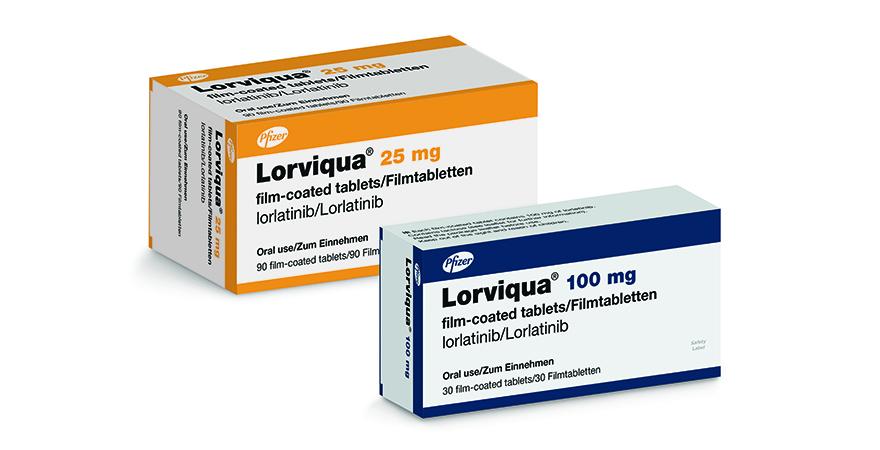Alunbrig (brigatinib) vs Lorviqua (lorlatinib)
Alunbrig (brigatinib) vs Lorviqua (lorlatinib)
Alunbrig (brigatinib) and Lorviqua (lorlatinib) are both targeted therapies known as tyrosine kinase inhibitors used to treat non-small cell lung cancer (NSCLC) with specific genetic alterations, primarily ALK-positive tumors. Alunbrig is typically used after crizotinib failure and has shown high efficacy in inhibiting ALK mutations, including some resistant to first-line treatment. In contrast, Lorviqua is a third-generation ALK inhibitor that can be used after other ALK inhibitors have failed and is noted for its ability to penetrate the blood-brain barrier, potentially treating or preventing brain metastases more effectively. When deciding between the two, it is crucial to consider the specific mutation profile of the tumor, previous treatments, and the potential side effect profile of each medication, as well as consulting with a healthcare provider for personalized medical advice.
Difference between Alunbrig and Lorviqua
| Metric | Alunbrig (brigatinib) | Lorviqua (lorlatinib) |
|---|---|---|
| Generic name | Brigatinib | Lorlatinib |
| Indications | Non-small cell lung cancer (NSCLC) with ALK mutations | Non-small cell lung cancer (NSCLC) with ALK or ROS1 mutations |
| Mechanism of action | ALK and EGFR inhibitor | ALK and ROS1 inhibitor |
| Brand names | Alunbrig | Lorviqua |
| Administrative route | Oral | Oral |
| Side effects | Nausea, diarrhea, fatigue, cough, headache | Edema, weight gain, cognitive effects, mood effects, hypercholesterolemia |
| Contraindications | Hypersensitivity to brigatinib | Hypersensitivity to lorlatinib |
| Drug class | Tyrosine kinase inhibitor | Tyrosine kinase inhibitor |
| Manufacturer | Takeda Pharmaceuticals | Pfizer |
Efficacy
Alunbrig (brigatinib) Efficacy in Lung Cancer
Alunbrig (brigatinib) is an anaplastic lymphoma kinase (ALK) inhibitor approved for the treatment of patients with ALK-positive metastatic non-small cell lung cancer (NSCLC) who have progressed on or are intolerant to crizotinib. Clinical trials have demonstrated that brigatinib has significant efficacy in this patient population. In the pivotal phase 2 trial known as ALTA, patients treated with brigatinib after crizotinib failure showed an objective response rate (ORR) of 45-56%, depending on the dosage received. Moreover, the median progression-free survival (PFS) was reported to be between 13.8 and 16.7 months, highlighting the drug's potential in controlling disease progression.
Further supporting its efficacy, brigatinib has shown activity against central nervous system (CNS) metastases, a common complication in ALK-positive NSCLC. In the ALTA trial, intracranial response rates were encouraging, with a significant proportion of patients experiencing a reduction in CNS lesions. This ability to penetrate the blood-brain barrier and exert anti-tumor effects within the CNS is a notable advantage in the management of lung cancer with brain metastases.
Lorviqua (lorlatinib) Efficacy in Lung Cancer
Lorviqua (lorlatinib) is another ALK inhibitor used in the treatment of ALK-positive metastatic NSCLC. It is designed to inhibit the most common ALK mutations, including those resistant to other ALK inhibitors. Lorlatinib is particularly effective in patients who have previously been treated with one or more ALK inhibitors. In a phase 2 trial, lorlatinib demonstrated an ORR of 47% in patients who had received at least one prior ALK inhibitor. The median PFS was impressive, with patients experiencing a median duration of 7.0 months before disease progression.
Similar to brigatinib, lorlatinib has also shown a strong capability to manage CNS metastases in ALK-positive NSCLC patients. In clinical studies, lorlatinib achieved substantial intracranial responses, indicating its effectiveness in treating and controlling brain metastases. This characteristic is particularly valuable, as CNS involvement is a challenging aspect of lung cancer treatment and is associated with a poorer prognosis. Lorlatinib's ability to address this issue provides a critical option for patients with advanced-stage disease.
Regulatory Agency Approvals
Alunbrig
-
European Medical Agency (EMA), European Union

-
Food and Drug Administration (FDA), USA

-
Pharmaceuticals and Medical Devices Agency (PMDA), Japan

Lorviqua
-
European Medical Agency (EMA), European Union

-
Food and Drug Administration (FDA), USA

-
Health Canada

-
Therapeutic Goods Administration (TGA), Australia

Access Alunbrig or Lorviqua today
If Alunbrig or Lorviqua are not approved or available in your country (e.g. due to supply issues), you can access them via Everyone.org.
How it works

Make an enquiry
Choose the medicine you want to buy, answer a couple of questions, and upload your prescription to speed things up. We’ll get back to you within 24 hours.


Make an enquiry
Choose the medicine you want to buy, answer a couple of questions, and upload your prescription to speed things up. We’ll get back to you within 24 hours.


Breeze through the paperwork
We'll guide you through the required documents for importing unapproved medicine, ensuring you have all the necessary information.


Get a personalized quote
We’ll prepare a quote for you, including medicine costs and any shipping, administrative, or import fees that may apply.


Receive your medicine
Accept the quote and we’ll handle the rest - sourcing and safely delivering your medicine.

Some text on this page has been automatically generated. Speak to your physician before you start a new treatment or medication.
Let's talk
If you have any questions, call us or send us a message through WhatsApp or email:
Contact us




